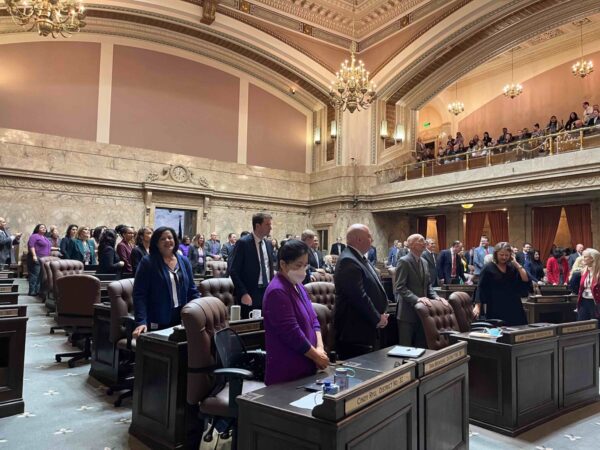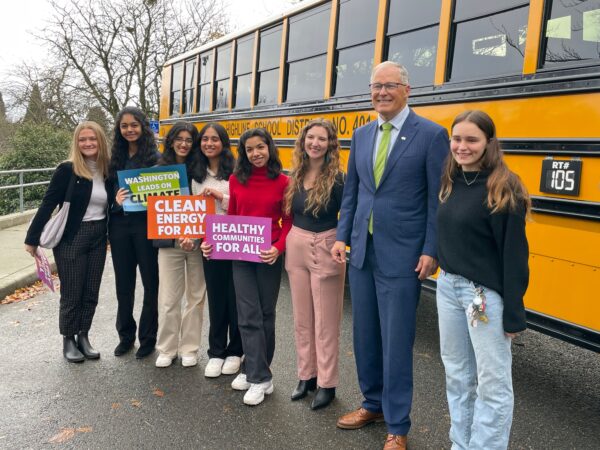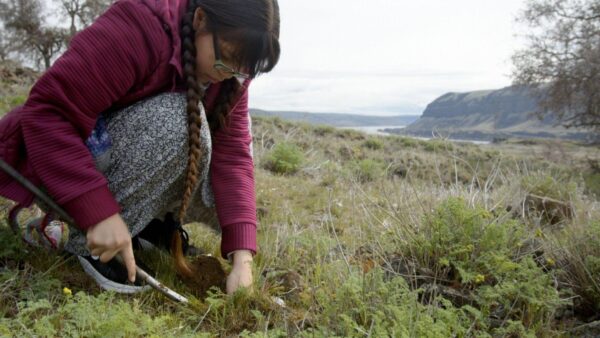SEATTLE, WA — On Thursday afternoon, environmental and indigenous leaders from Washington state will meet with the Consulate General of Canada to reiterate their strong opposition to the Trans Mountain Pipeline expansion project in British Columbia and any increases in tar sands crude oil shipments by tanker, train, or pipeline in Washington state.
The meeting will be followed by a press conference with representatives from Tulalip Tribe, 350 Seattle, Friends of the San Juans, Sightline Institute, Stand.earth, Stand Up to Oil Coalition, and Washington Physicians for Social Responsibility.
At the press conference, representatives will discuss the recent Canadian federal government buy out of the Trans Mountain Pipeline — which includes the Puget Sound Pipeline spur that runs to four refineries in Washington state. Representatives will also address the climate and health impacts of tar sands, the oil spill risk from increased tanker traffic in the Salish Sea, and concerns over Canada’s climate plan.
Washington Governor Jay Inslee has spoken out against the Trans Mountain Pipeline expansion project over oil spill and tanker traffic concerns. Recently, 79 elected leaders (including 29 state legislators) who are part of the Safe Energy Leadership Alliance (SELA) sent a letter to B.C. Premier John Horgan to show solidarity with opposition to the project.
WHAT: Press conference on Washington state opposition to Kinder Morgan Trans Mountain Pipeline
WHEN: Thursday, June 7, 4:30 p.m.
ONLINE: The press conference will be livestreamed at https://www.facebook.com/cascadechapter/
WHERE: Room 630, Joseph Vance and Sterling Buildings, 1402 3rd Ave, Seattle, WA 98101
WHO:
- Megan Smith, Director of Climate and Energy Initiatives for King County and member of the Safe Energy Leadership Alliance (SELA)
- Kayah Parker George, member of Tulalip Tribe in Washington State and Tsleil-Waututh Nation in British Columbia
- Cedar George Parker, member of Tulalip Tribe in Washington State and Tsleil-Waututh Nation in British Columbia
- Stephanie Buffum, Executive Director at Friends of the San Juans
- Dr. Margaret Kitchell, Climate & Health Task Force at Washington Physicians for Social Responsibility
- Matt Krogh, Extreme Oil Campaign Director at Stand.earth
- Patrick Mazza, Co-Facilitator of 350 Seattle Community Solutions Workgroup
- Rebecca Ponzio, Campaign Director at Stand Up to Oil Coalition
- Clark Williams-Derry, Director of Energy Finance at Sightline Institute
NOTES FOR EDITORS ON PUGET SOUND PIPELINE
On May 29, 2018, the Canadian federal government announced it would buy out the existing Trans Mountain Pipeline and expansion project from Kinder Morgan Canada, spending C$4.5B to purchase the existing infrastructure, also taking on an assumed C$7.4B in construction costs, totaling nearly C$12B.
The purchase includes the existing Puget Sound Pipeline spur, which splits from the existing Trans Mountain Pipeline east of Langley, B.C. and runs into Washington state to the BP and Phillips 66 refineries in Whatcom County and the Andeavor (formerly Tesoro) and Shell refineries in Skagit County.
Financial disclosure documents issued as part of Kinder Morgan Canada’s Initial Public Offering in 2017 indicate that as part of the Trans Mountain Pipeline expansion project, the company has indicated the potential to more than double the potential throughput of the Puget Sound Pipeline, boosting its capacity from 240,000 to 500,000 barrels per day (bpd). The pipeline currently averages 191,000 bpd.
The potential doubling of the Puget Sound Pipeline was mentioned again in February 2018 in Kinder Morgan Canada’s annual U.S. Securities and Exchange Commission filing. This proposal comes despite ongoing U.S. resistance to the pipeline to prevent crude oil export, including land use updates in Whatcom County intended to prevent any increases in shipments of tar sands crude oil through the Puget Sound Pipeline spur, and a moratorium on permits for new fossil fuel infrastructure projects in effect in Whatcom County since August 2016.
###
Media contact: Virginia Cleaveland, Press Secretary, Stand.earth, virginia@stand.earth, 510-858-9902 (US), 778-984-3994 (Canada)



